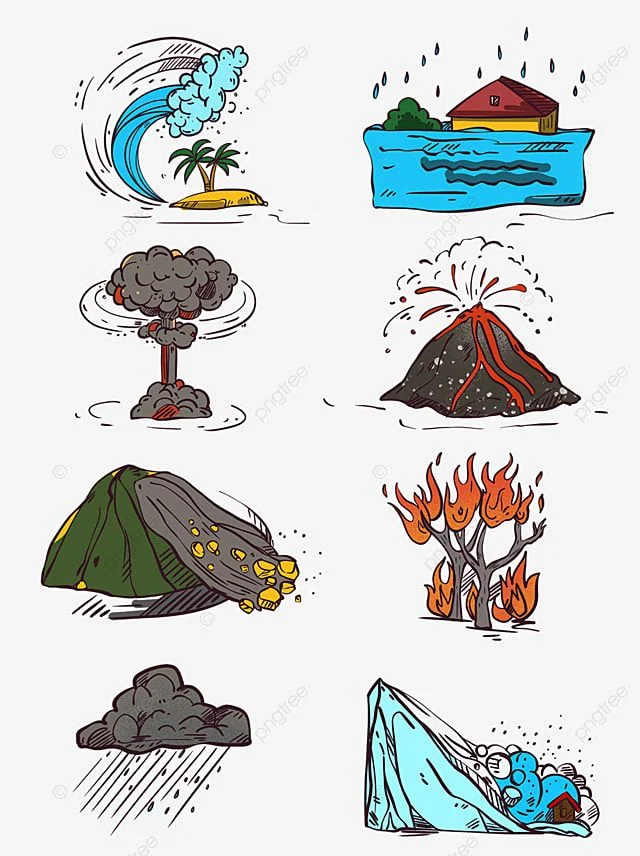Disaster Recovery: What Happened and What We Know
Brazil's Disaster: A Wake-Up Call for Global Collaboration in Crisis Response?
Okay, folks, let's dive into something that's been weighing on my mind: the recent UK court ruling holding BHP liable for the 2015 dam collapse in Brazil. Nineteen lives lost, a river poisoned, homes obliterated – it’s a tragedy of immense scale. But amidst the devastation, I see a glimmer of something crucial: a growing recognition of global responsibility in the face of environmental disasters.
This isn’t just about assigning blame; it’s about building a future where such catastrophes are less likely, and where responses are faster, more effective, and more human-centered. The disaster unleashed tens of millions of cubic meters of toxic waste, a wave of destruction that's almost impossible to fathom. And while BHP says many claimants have already been compensated in Brazil, the sheer scale of the lawsuit – representing over 600,000 people – speaks volumes about the inadequacy of the initial response.
The court case itself is fascinating, right? Lawyers argued successfully that the trial should be held in London because BHP headquarters "were in the UK at the time of the dam collapse." It’s a complex web of international law and corporate accountability, and it highlights the interconnectedness of our world. A disaster in Brazil can have legal ramifications in the UK, and that’s a powerful statement. UK court finds mining firm liable for Brazil's worst environmental disaster
But here's the thing that really grabbed me: the existing Renova Foundation, set up by BHP and Vale, has already disbursed billions in repair and compensation. And yet, Pogust Goodhead alleges the companies pressured claimants to "settle their claims at far below their true value." This raises a critical question: how do we ensure that compensation efforts are truly fair and equitable, and not just a way for corporations to minimize their financial exposure? It's a tough question, and one I don't have an easy answer for, but we have to keep asking it.
Disaster Response: A Global Village
This situation reminds me of something else entirely, actually: the Washington National Guard's recent disaster response training with Malaysia's SMART team. Think about it: the Washington National Guard, the 10th Homeland Response Force, the Spokane Valley Fire Department, Spokane County Sheriff’s Office all working with members of the Malaysian National Disaster Management Agency. This isn’t just about sharing techniques, like swiftwater rescue or breaking and breaching procedures. It’s about building relationships, fostering trust, and creating a global network of first responders who can assist each other in times of need.
U.S. Air Force Master Sgt. Dereck Reese put it perfectly: "The most important thing is the partnerships that we have with other countries [and] being able to work together. That's a huge deal. If we ever got called to assist them—or if they ever got called to assist us—building that relationship is super important, and just learning different things and sharing that knowledge."

Imagine a world where disaster response isn't just a local or national effort, but a coordinated global endeavor. Where resources, expertise, and personnel can be deployed rapidly to any corner of the planet, regardless of political boundaries. It's a bold vision, I know, but is it really that far-fetched?
The Colorado floods are another stark reminder of the increasing frequency and intensity of natural disasters. Gov. Jared Polis's request for a major disaster declaration highlights the strain on local resources and the need for federal assistance. Colorado Gov. Jared Polis asks President Trump to issue major disaster declaration for October floods The floodwaters breached levees, washed out roadways, and triggered evacuations for hundreds of homes. FEMA said the flooding caused $13,820,036 in damage to public infrastructure, primarily to roads and bridges.
We're talking about communities being ripped apart, lives disrupted, and economies devastated. And while financial aid is crucial, it's not enough. We need to be proactive, investing in infrastructure that can withstand extreme weather events, developing early warning systems that can save lives, and fostering a culture of preparedness at the community level.
And here’s where I get really excited: what if we could leverage technology to enhance disaster response? Imagine AI-powered drones that can assess damage in real-time, providing first responders with critical information about the location of survivors and the extent of the devastation. Think of advanced sensor networks that can detect early signs of landslides or floods, giving communities precious time to evacuate. This is the kind of breakthrough that reminds me why I got into this field in the first place.
But with all this potential comes a responsibility, doesn't it? As we develop these powerful technologies, we need to ensure that they are used ethically and equitably. We need to be mindful of privacy concerns, avoid bias in algorithms, and ensure that everyone has access to the benefits of these innovations, regardless of their socioeconomic status.
This is a moment where all the separate threads are starting to weave together. The legal accountability for past disasters, the growing international cooperation, and the potential of technology to revolutionize disaster response.
A Future Forged in Resilience
The disasters we've faced have been tough, no doubt. But they've also revealed our capacity for resilience, our willingness to help each other, and our determination to build a better future. Let's embrace that spirit and work together to create a world where disasters are met with compassion, innovation, and unwavering resolve.
